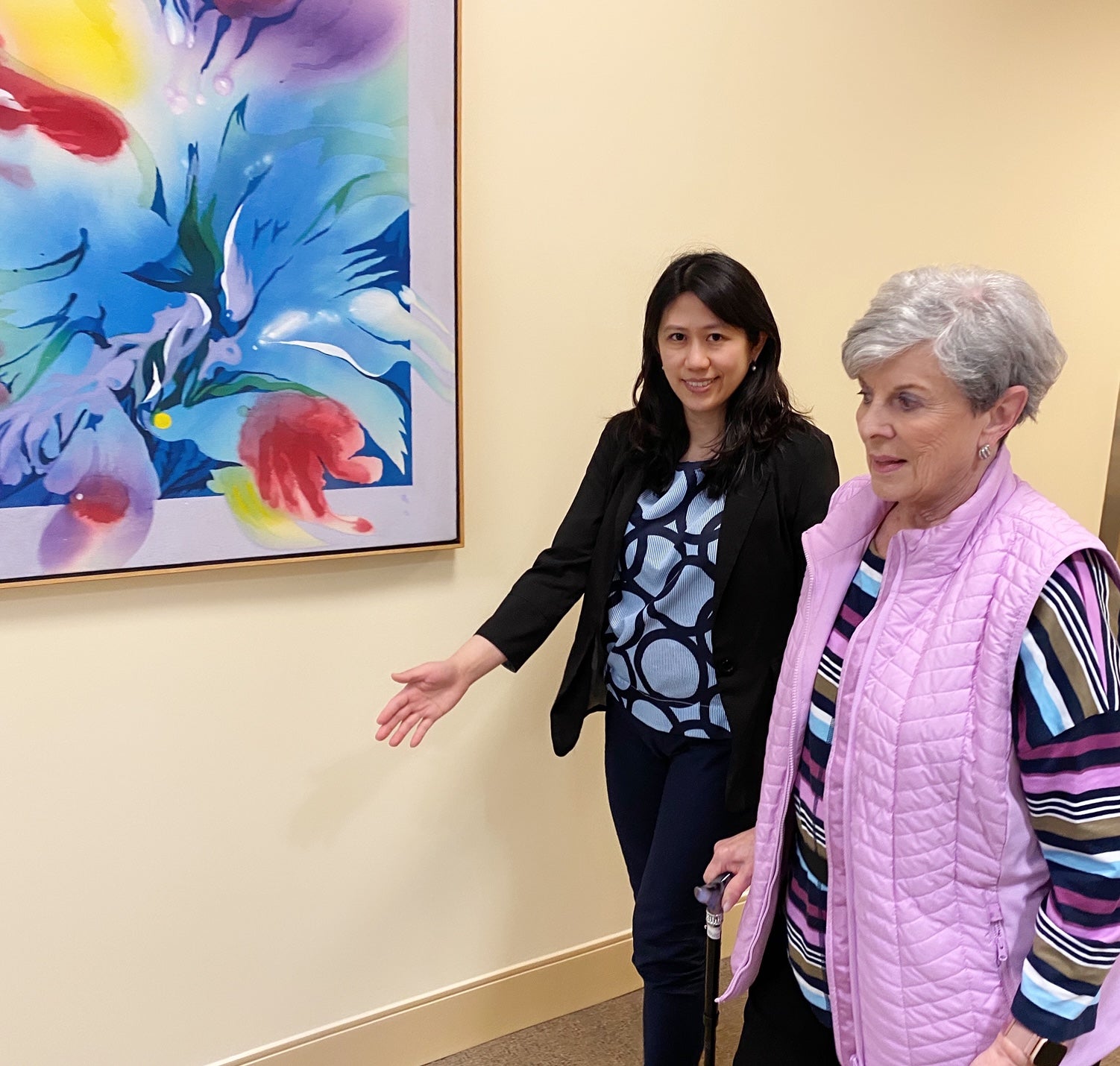News & Highlights
Topics: Clinical & Translational Research, Education & Training, Five Questions
Five Questions With On-Yee Amy Lo
KL2/CMeRIT awardee and former C/T Research Academy graduate On-Yee Amy Lo shares how Harvard Catalyst is helping advance her research and career.

On-Yee Amy Lo, PhD, is a KL2/Catalyst Medical Research Investigator Training awardee and an assistant scientist in Hebrew SeniorLife’s Hinda and Arthur Marcus Institute for Aging Research. She was a postdoctoral fellow in the Harvard Translational Research in Aging Training Program (2016-2019) and completed Harvard Catalyst’s Clinical and Translational Research Academy (2016-2018).
You have combined expertise as a physical therapist and research scientist. How did your career path evolve?
I knew I wanted a career that can help people regain functional independence and improve quality of life. And during my internship and early clinical practice experience, I noticed that we didn’t have enough evidence to follow in this profession. While I treated neurological patients with conditions such as stroke, Parkinson’s disease, and traumatic brain injury, I became amazed by how human movement works and fascinated by how our brains can influence our movements. I then started thinking about how I could make a broader impact beyond one-on-one patient care and applied for graduate school. I’m still motivated to understand how the brain works and apply the knowledge in clinical practice for those with mobility impairments.
What role so far have Harvard Catalyst programs had in your career advancement?
I really appreciate the opportunities provided by Harvard Catalyst. I immediately got accepted to the Clinical and Translational Research Academy once I started my postdoc. It was highly recommended and helped me successfully obtain the KL2/Catalyst award and another pilot grant. In particular, I appreciate the network established through this program, and the feedback received from both the advisors and my colleagues. My mentors provided valuable insights on my project and ensured that both my research project and my career development were on the right track.
Although I only just started the KL2/Catalyst Medical Research Investigator Training in October, I’ve already experienced the magical ingredients I’d heard so much about regarding this successful program. I was admitted to Harvard Catalyst’s Grant Review and Support Program (GRASP), and went through its intensive three-day orientation, which introduced me to the process that will help me get my next independent grant. We have tasks to accomplish every month. I look forward to working with the GRASP team and with my KL2 mentorship advisory committee. It has been extremely helpful to receive guidance and insights from senior faculty.
“I appreciate the network established through this program, and the feedback received from both the advisors and my colleagues. My mentors provided valuable insights on my project and ensured that both my research project and my career development were on the right track.”
Describe your current research and its implications for older adults.
Every 11 seconds an older adult is sent to the ER due to a fall and every 20 minutes an older adult dies from a fall. Falls are expected to continue being the leading cause of injury and death in older Americans. Although the causes of falls are many, two causes are unstable walking and poor attention.
Our most recent work found that a unique interaction between two specific brain networks—the dorsal attention network and the default network—contributes to both unstable walking and poor attention. Unstable gait and poor attention are also related. We have designed a novel brain stimulation method to safely and non-invasively modulate these two brain networks. We’d like to better understand their mechanism and ultimately improve both walking and attention. I also obtained a pilot grant to determine the feasibility and effectiveness of non-invasive brain stimulation, called transcranial direct stimulation, as an adjunct to physical therapy to improve control of balance and gait in older adults at high risk of falling.
What would you like to be doing professionally 10 years from now?
My career goal is to maximize the functional independence and quality of life of older adults at high risk of falls. I appreciate the mentorships, opportunities, and resources in the Hebrew SeniorLife and Harvard community, which have helped and continue helping me translate what we have learned. And hopefully within 10 years we can really make an impact in preventing falls, not only within the Hebrew SeniorLife community, but also nationally and internationally.
Is there something others might be interested in knowing about you?
I am an adventurous person (relative to my friends). I’ve bungee jumped once and sky dived twice so far. My adventurous spirit brought me here to the United States from Taiwan for graduate school, through a couple of coast-to-coast moves, before landing in Boston. This last move has brought me a new adventure called parenthood. I am the proud mother of a nine-month-old son, who sometimes doesn’t believe that sleeping through the night is a good hypothesis to follow! As for the next journey in life, that’s for life to decide, but knowing my nature, I will most likely answer the call.

